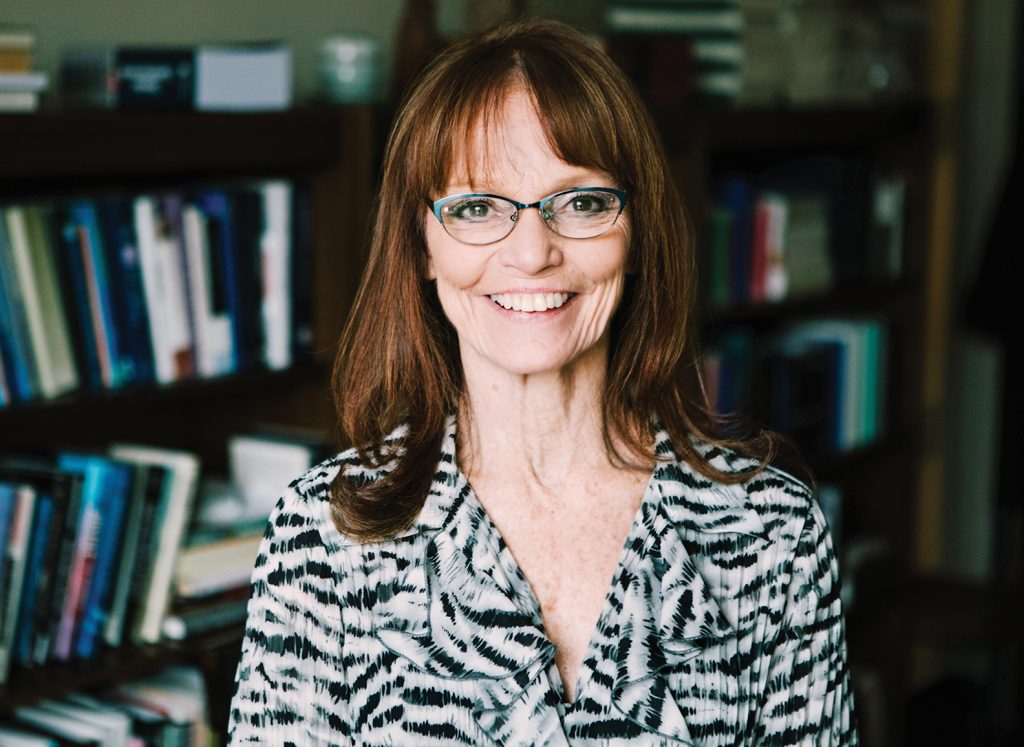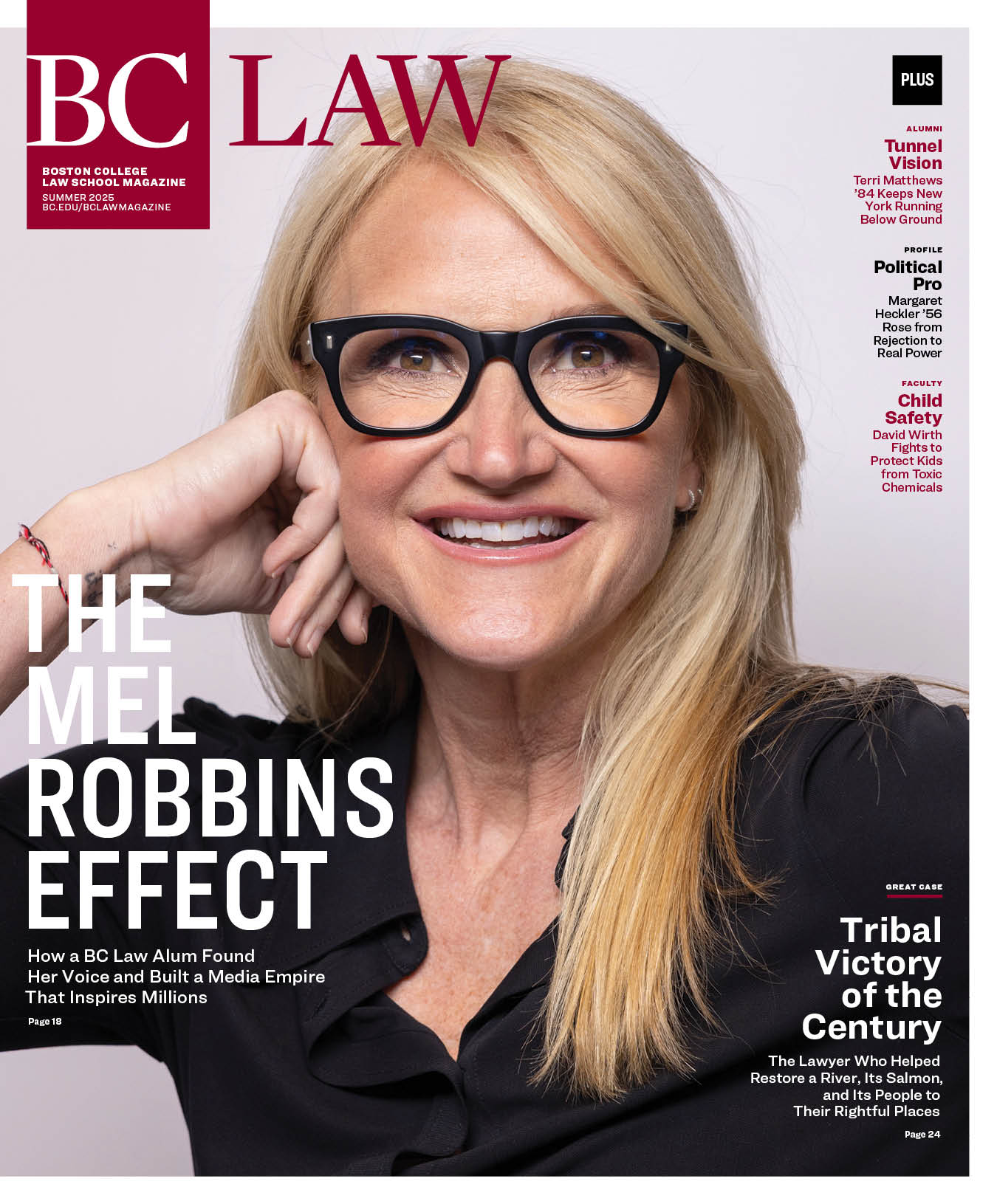Let us count the ways. How are members of the BC Law community making a difference in the world?
One of our alumni drafted the 1974 law that banned bias against women, giving them the right to obtain credit cards and mortgages. Another helped Native Americans achieve the world’s largest dam removal project last year, restoring a river basin, its inhabitants, and its wildlife. A third turned hard personal lessons into motivational advice that has inspired 32 million followers, one of whom even declared, “Oh my God, Mel saved my life.” The three—Margaret Heckler ’56, Scott Williams ’74, and Mel Robbins ’94—are featured in this issue of BC Law Magazine, yet they are but a fraction of BC Law’s game-changers.
Two pioneering faculty, Paul Tremblay and Alan Minuskin, received praise and thanks at a retirement party in June for their ground-breaking contributions to clinical education and the know-how and how-to they generously bestowed on thousands of students. Professor David Wirth co-authored an article in one of the world’s top medical journals, providing new insights into and calls for better regulation of the chemicals that are damaging children’s health.
Student Samina Gagné ’26, a former Sotheby’s and Phillips auctioneer, spotted the legal and ethical challenges faced by the art auction industry and switched careers, enrolling at BC Law so she could use the tools of justice to meet those challenges. Terri Matthews ’85 has spent her career in New York City government, but the work she’s currently doing in public utility infrastructure is both unexpected and, yes, fascinating.
Claudia Lagos ’11, a criminal defense attorney at Scully & Lagos, looks with compassion at the people she defends. “Once someone is accused of a crime, they can lose so much,” she observed. “In this kind of work, it’s hard to sit across from someone and not feel with your whole heart that this is a human being who needs your help.”
Still counting. In addition to community members’ compelling stories published in this print edition are the articles that appear almost daily, year-round, in the online magazine.
So, yes, in our Boston College Law School way, we are asking humankind, as poet Elizabeth Barrett Browning did her husband in “Sonnet 43” more than a century ago: “How do I love thee? Let me count the ways.”
Vicki Sanders, Editor
vicki.sanders@bc.edu



